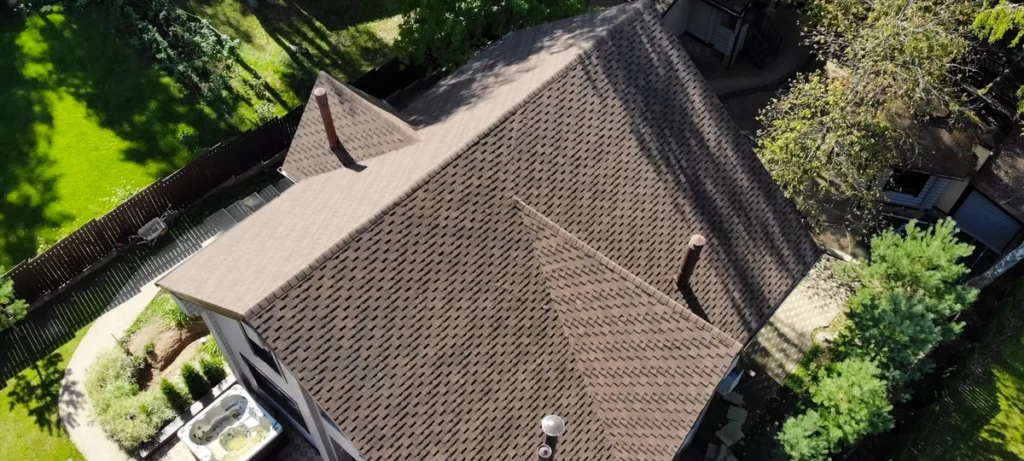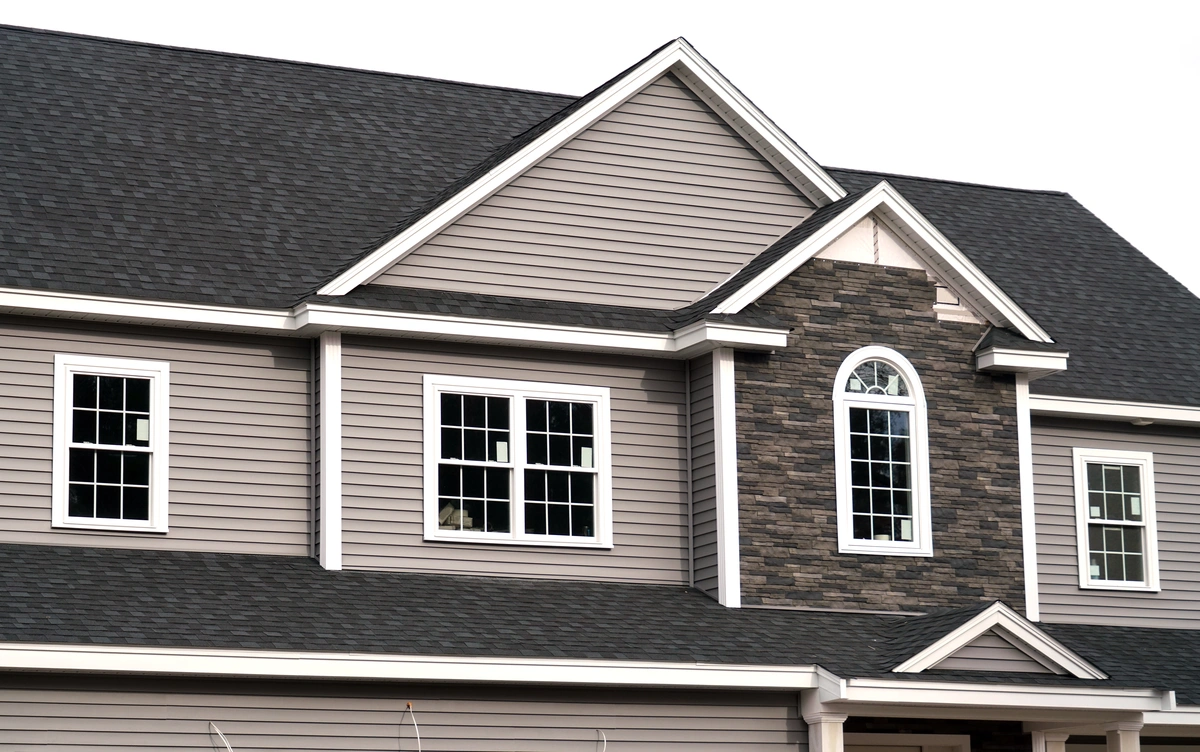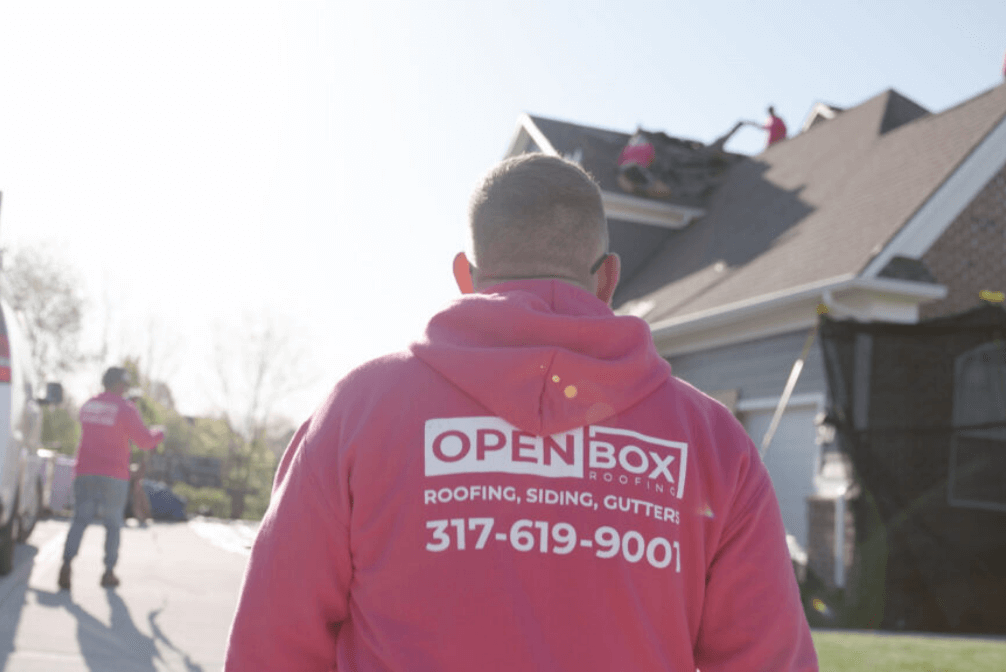When it comes to maintaining and improving our homes, the roof is one of the most vital components. A well-maintained roof not only enhances curb appeal but also protects us from the elements. However, the cost of repairing or replacing a roof can be significant, often leading homeowners to seek financing options.
If this is the first time you’ve had to deal with a roof replacement, your head might be swimming with information. We’re here to help you! In this article, we’ll delve into the world of roof financing, exploring:
- Different options
- Costs
- How to find a reputable contractor
Keep reading to learn all of that and more!
Understanding Roof Financing: What Is It?

Roof financing refers to the various methods and options available for homeowners to fund the repair or replacement of their roofing systems. These financing options enable homeowners to spread out the cost of roof projects over time, making them more manageable and accessible. Roof financing can help you address roofing issues promptly, preventing further damage to your home and saving you money in the long run.
7 Roof Financing Options
Knowing the financing options that are available to you can help you to tackle your roof replacement costs without breaking the bank. The good news is that there are plenty of different routes that you can take! Here are seven of the most popular options when it comes to financing a new roof:
1) Personal Savings
If you have a robust emergency fund or savings earmarked for home maintenance, using your personal funds can be the simplest financing option. This approach eliminates interest payments and the need for credit checks.
2) Credit Cards
For smaller roofing projects, using a credit card with a low-interest rate can be a viable option. However, this approach is recommended only if you can repay the balance within a short period to avoid accumulating high-interest debt.
3) Home Equity Loans
Homeowners with substantial equity in their homes can consider a home equity loan. These loans offer competitive interest rates, and the interest paid may be tax-deductible. However, remember that your home is used as collateral, so timely repayments are crucial.
4) Personal Loans

Unsecured personal loans are another option for financing your roof project. These loans don’t require collateral but may have higher interest rates compared to secured loans.
5) Roofing Company Financing
Many reputable roofing companies offer financing options directly to their customers. These plans can include low or even zero-interest promotions for a limited time, making them an attractive choice.
6) Government Programs
Some local or federal programs offer incentives for energy-efficient roofing upgrades. These programs can provide financial assistance or tax incentives to homeowners who opt for environmentally friendly roofing materials and systems.
7) Insurance Claims
If your roof damage is caused by covered perils, your homeowner’s insurance might cover part or all of the repair or replacement costs. Check your policy and consult with your insurance provider to determine eligibility.
The Average Cost of a Roof Replacement
The cost of a roof replacement can vary significantly based on factors such as the size of your home, the roofing material chosen, the complexity of the design, and the region you live in. On average, a roof replacement can range from $5,000 to $15,000 or more. Here’s a breakdown of the costs by roofing material:
- Asphalt Shingles: The most common roofing material, asphalt shingles, are relatively affordable, with costs ranging from $3 to $7 per square foot.
- Metal Roofing: Metal roofing offers durability and a modern aesthetic. Costs typically range from $7 to $12 per square foot.
- Wood Shakes: Wood shakes provide a classic look but tend to be more expensive due to their labor-intensive installation. Costs can range from $8 to $14 per square foot.
- Slate or Tile: These premium materials offer exceptional longevity and beauty but come with a higher price tag, ranging from $10 to $30 or more per square foot.
How to Find a Reputable Roofing Contractor

Selecting the right contractor is as crucial as choosing the right financing option. Here are some steps to help you find a reputable roofing contractor:
- Research: Start by researching local roofing contractors. Look for established companies with positive reviews and a good reputation in your community.
- Ask for Recommendations: Seek recommendations from friends, family, neighbors, and colleagues who have had roof work done recently. Personal experiences and referrals can be invaluable.
- Check Credentials: Ensure the contractor is licensed, insured, and bonded. This protects you from liability in case of accidents or damages during the project.
- Get Multiple Quotes: Obtain detailed quotes from multiple contractors. This not only helps you compare costs but also gives you insights into the scope of work and materials each contractor plans to use.
- Ask Questions: Don’t hesitate to ask questions about the project timeline, materials, warranties, and any concerns you might have.
- Review Contracts: Carefully review the contract before signing. Make sure it includes project details, payment terms, and warranties.
- Visit Past Projects: If possible, visit some of the contractor’s past projects to assess the quality of their work firsthand.
- Check References: Ask the contractor for references from previous clients. Contact these references to inquire about their experiences working with the contractor.
The Best Contractor for the Job
Your home deserves the best possible care. When you work with OpenBox Roofing, that is exactly what you will get. At OpenBox, we work with you to help you create a roofing system that works with your specific needs and budget. Ready to get started? Contact us today to discuss your options.



